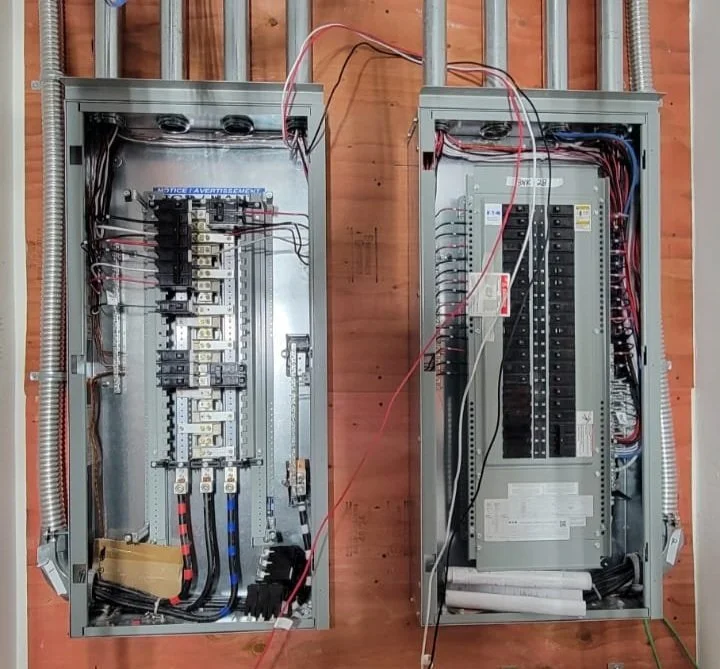
A Guide to Installing EV Chargers at Home
June 23, 2025
A Guide to Installing EV Chargers at Home
Electric vehicles (EVs) are no longer just the cars of the future — they’re the cars of today. In Kansas City and across the country, more people are choosing electric for their next vehicle. Whether it’s the rising cost of gas, new tax incentives, or the growing variety of EV models, demand is high. But once you’ve made the decision to go electric, there’s another important question: how will you charge it?
For most EV owners, home charging is the most convenient option. Instead of searching for a public station or waiting in line, you can simply plug in at home and wake up to a fully charged battery every morning. Installing an EV charger at home is a smart investment — and Lynn Electric is here to help make the process easy and safe.
Here’s what you should know before installing an EV charger at your home.
Why You Need a Professional Installation
While it’s tempting to think you can handle the installation on your own (especially if you’re handy), this is one upgrade that should always be done by a licensed electrician. EV chargers draw a significant amount of power, and it’s critical to ensure your home’s electrical system can handle the load safely.
An experienced electrician will evaluate your electrical panel, wiring, and circuits to ensure everything meets code and won’t overload when the charger is running. In some cases, you may need a panel upgrade or dedicated circuit. Skipping this step can result in damaged wiring, tripped breakers, or worse — a fire hazard.
At Lynn Electric, we always perform a full inspection before any EV charger installation to ensure your system is ready.
Level 1 vs. Level 2 Chargers
When people talk about home EV charging, they usually mean one of two types:
- Level 1: This uses a standard 120V outlet — the same kind you’d plug a lamp into. It’s very slow (often adding just 3–5 miles of range per hour). Most EVs come with a Level 1 charging cable, but it’s not practical for everyday use unless you drive very little.
- Level 2: This is the gold standard for home charging. It uses a 240V outlet and can add 20–30 miles of range per hour, fully charging most EVs overnight. Installing a Level 2 charger typically involves running a new circuit and wiring, which is where a licensed electrician is essential.
Our team at Lynn Electric will help you choose the right charger for your home and driving habits, and handle all the installation work from start to finish.
Permits and Inspections
In Kansas City and surrounding areas, installing a Level 2 EV charger usually requires an electrical permit. This ensures the work is up to code and safe for your home. Lynn Electric handles this process for you — we’ll pull the necessary permits, schedule inspections, and make sure everything passes before we complete the job.
Cost of Installation
The cost of installing an EV charger depends on a few factors:
- How far your electrical panel is from your garage or driveway
- Whether your panel needs an upgrade
- The type of charger you select
Basic installations can often be completed for a few hundred dollars, while more complex jobs may cost more — especially if trenching or significant panel upgrades are needed. We always provide a clear, upfront quote so there are no surprises.
Rebates and Incentives
There are also potential rebates and incentives available for EV charger installations. Federal tax credits and utility company programs may help offset the cost. Lynn Electric can help you understand what’s currently available and how to claim any rebates after your install.
Get Ready to Charge at Home
If you’re driving an EV (or planning to), installing a dedicated charger at home is one of the best upgrades you can make. It adds convenience, saves you time, and ensures you can always start your day with a full battery.
Ready to install your EV charger? Contact Lynn Electric today to schedule a consultation — we’ll make sure your home is ready for the future of driving.





